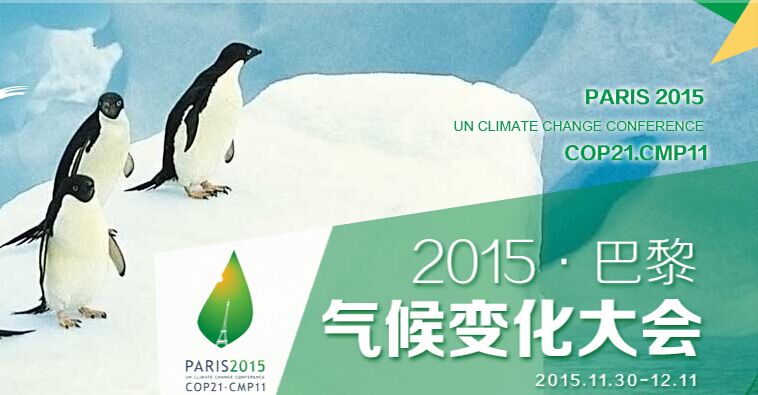LI XINLEI: China increasingly taking lead in climate talks

The 2015 United Nations Climate Change Conference takes place from Nov. 30 to Dec. 11, 2015, in Paris, France, during which the Paris Agreement was adopted.
China is the largest developing country and the second-largest economy. At the same time, it is also the world’s largest energy consumer and producer of carbon emissions, which is why its government is now taking the lead in addressing these problems. At the Paris climate talks, China took on a greater role relative to the part it played at the previous UN climate conference in Copenhagen. It helped to set agendas on challenging issues, such as capital, technical support and binding agreements, and its intervention has been instrumental in breaking the stalemate on the negotiations.
Above all, China has made progress in low-carbon development. A series of measures have been taken in recent years to encourage energy-efficient technology and clean energy. In 2009, China had the largest installed capacity of clean energy and the most investment in green growth. As of 2014, China accounted for 52 percent of the global aggregate reduction in energy usage over the past 20 years, with domestic carbon intensity dropping to 33.8 percent and the share of non-fossil fuels reaching 11.2 percent, China’s lead negotiator in the last three UN Climate Change Conferences said.
At the Paris conference, China proposed the establishment of a nationwide carbon market after 2017, which will involve about 10,000 companies covering six industries and include almost half of the total carbon emissions every year, or 4 billion tons. China will become the biggest carbon market and will cooperate with other regions and countries that have established carbon markets, such as the EU and South Korea.
China has brought the climate change issue under the framework of the new model of major-country relations. It emphasizes enhancing mutual trust and understanding to avoid impasses in the talks. China signed bilateral statements with the United States, the European Union, Brazil and India ahead of the Paris meeting to resolve differences that presented roadblocks in previous negotiations. The coordinated efforts have greatly contributed to global climate governance.
In addition, China has been shouldering responsibilities in solving North-South problems. Despite the possible disintegration of G77 plus China, China is working to coordinate with developing nations to unify them by participating in cooperation with BASIC countries—Brazil, South Africa, India and China—and South-South cooperation.
After the Copenhagen conference, China cooperated on climate change with emerging powers. At the Paris meeting, the BASIC countries announced a joint statement demanding that developed nations fulfill their promises, including raising $100 billion every year until 2020 to help developing nations address climate change, providing assistance in technical support and capacity building, and making more investment after 2020.
Also, China pledged $3.1 billion to the South-South Cooperation Fund on Climate Change in an attempt to help developing nations and small inland countries tackle the problem. This year, it will launch 10 pilot low-carbon industrial parks and 100 projects for climate change mitigation and adaptation in other developing countries, and provide them with 1,000 training opportunities on climate change to promote global action.
Moreover, China has been optimizing its negotiation strategies. It has begun to enhance the discourse about its low-carbon practices. At every climate meeting after the Durban conference, it set up a Chinese corner to exhibit its achievements in emission reduction, low-carbon development and climate financing.
Before the Paris meeting, China set goals it plans to achieve by 2030 in the document of China’s Intended Nationally Determined Contributions: to achieve peak carbon dioxide emissions around 2030 and make best efforts to peak early, to lower carbon dioxide emissions per unit of GDP by 60 percent to 65 percent relative to the 2005 level, and to increase the share of non-fossil fuels in primary energy consumption to around 20 percent. The action plan has won applause from the international community.
With the aforementioned efforts, China played a key role in the Paris Agreement.
Li Xinlei is from the School of Politics and Public Administration at Shandong University.
